
Astronaut Bernard A. Harris Jr., right, talks to Scott Wood, an Oak Ridge National Laboratory computer analyst and Roane State Community College observatory volunteer, after a Friday morning talk at ORNL.
He had prepared for this space mission for years, starting as a boy fascinated by the Apollo program and continuing through rigorous astronaut training.
Still, as Bernard A. Harris Jr. stepped out of the space shuttle Discovery in 1995—the first African-American to walk in space—he hesitated, afraid he might get sucked out of the craft’s air lock and fall 250 miles to Earth.
Holy cow, Harris thought as the Earth flew by far below at 17,500 miles per hour.
“I am really doing this,” Harris recalled thinking. “It was just incredible.”
A member of NASA’s elite astronaut corps for 19 years, Harris flew two missions, one on Discovery and another on Columbia.
During a talk at Oak Ridge National Laboratory on Friday, he recalled the quick 90-minute trips around the planet, the frequent sunrises and sunsets, drastic temperature swings of more than 300 degrees, and the tremendous thrust of liftoff, when the now-retired shuttles quickly reached 2,500 miles per hour—and faster.
“You are catapulted off the planet in a big hurry,” Harris said.

Inspired by space travel when he was a boy, astronaut Bernard A. Harris Jr. helps the Boy Scouts of America promote STEM—science, technology, engineering, and mathematics—during a Friday talk at Oak Ridge National Laboratory.
Harris said his terrestrial mission now is to promote education in the 21st Century. He’s the national spokesperson for a new Boy Scouts of America program to promote STEM, or science, technology, engineering, and math.
“We’re trying to promote the next-generation workforce,” Harris said.
As part of that mission, Harris handed out awards during a Thursday night ceremony at New Hope Center in Oak Ridge.
Harris is a physician, astronaut, and venture capitalist who has degrees in biology, medicine, and business. He is founder and president of The Harris Foundation.
During his hour-long talk Friday, he said some children have lost the ability to dream, which he equated as the ability to see into the future.
The lack of dreams is why many of them get into trouble, Harris said. His job is to instill dreams.
He said about 30 percent of students don’t graduate from high school, and 47 percent of African-American and Hispanics don’t. That’s 1.2 million children per year in the United States.
And high school dropouts are two times more likely to be unemployed, three times as likely to live in poverty, and eight times more likely to go to prison, Harris said.
Meanwhile, the expected growth in the number of STEM-related jobs through 2018 is almost twice as high as it is for non-STEM jobs, Harris said. Yet the United States is not performing well on such measurements as student math achievement.
It’s a struggle for survival.
“We can no longer be as insular,” Harris said.
Harris said the nation’s space program is still alive and well, even though the space shuttles have been retired. He cited the privately run Space X transport company and the widely watched and celebrated landing of the Curiosity rover on Mars.
“There are plenty of opportunities for kids who want to become astronauts,” Harris said.

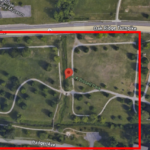


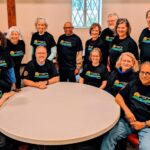
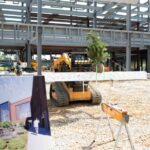

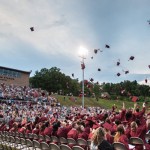
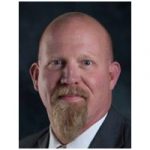

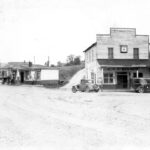
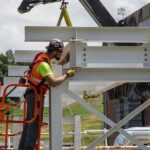
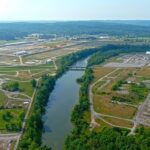
Peggy Tiner says
He is doing something greatly needed. Hope more join him!